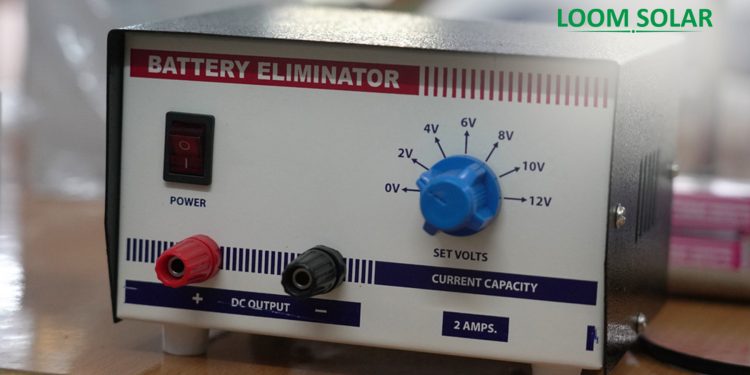Battery eliminators are used instead of normal dry batteries in radio receivers, tape recorders, calculators, and other low-power devices. If you’re a writer, professor, teacher, instructor, faculty member, researcher, scientist, doctor, or student looking for information on a battery eliminator, you’ve come to the right place.
Perfect Energy Storage
2 times battery life, consumes 50% less space, needs no maintenance & takes 60% less recharge time
What are the parts of the battery eliminator?
The battery eliminator consists of the following parts:
- Transformer
- Rectifier
- Filter circuit
1. Transformer
A transformer is tasked with converting any small alternating current at high voltage to a lower voltage alternate current. You can also do vice versa by converting any low voltage alternate current to a higher voltage alternate current.
2. Rectifier
A rectifier will be able to convert any alternate current to a direct current. Rectifiers are of two different types. They are a half-wave rectifier and a full-wave rectifier.
3. Filter circuit
The rectifier produces a fluctuating direct current. The filter circuit is used to verify that only direct current is utilised.
Why should you use a Battery eliminator?
A battery eliminator can act as an alternative when you don’t have batteries. So, if your battery is damaged or dead, you will be able to turn on your device with any other device that will be able to supply the voltage needed with the help of a battery eliminator.
Another practical usage of battery eliminators, as per the “Learning about Electronics” website, is that you can calculate the precise voltage it requires when fabricating a circuit. Also, removing and adding the batteries would take a lot of time and be stressful. Using the help of a battery eliminator, you will be able to adjust the voltage without putting up with many batteries.
What is the downside of using a battery eliminator?
Of course, even though a battery eliminator has many advantages, it has some disadvantages too. Let’s explore the major disadvantages of using a battery eliminator. One major disadvantage of using a battery eliminator is that it doesn’t allow portability. You might ask us; how will the battery eliminator give up on the portability? As you know, battery eliminators try to remove batteries, and it ends up powering the device with the help of a power supply or a battery eliminator or any external power outlets from a wall which ends up sacrificing the portability factor of the batteries.
Source:
http://www.dcmsme.gov.in/old/publications/pmryprof/it/ch4.pdf
http://www.allprojectreports.com/CBSE-HBSE-School-Projects/Physics-Project-Report/battery_eliminator.htm
http://www.learningaboutelectronics.com/Articles/How-to-build-a-battery-eliminator.php


















